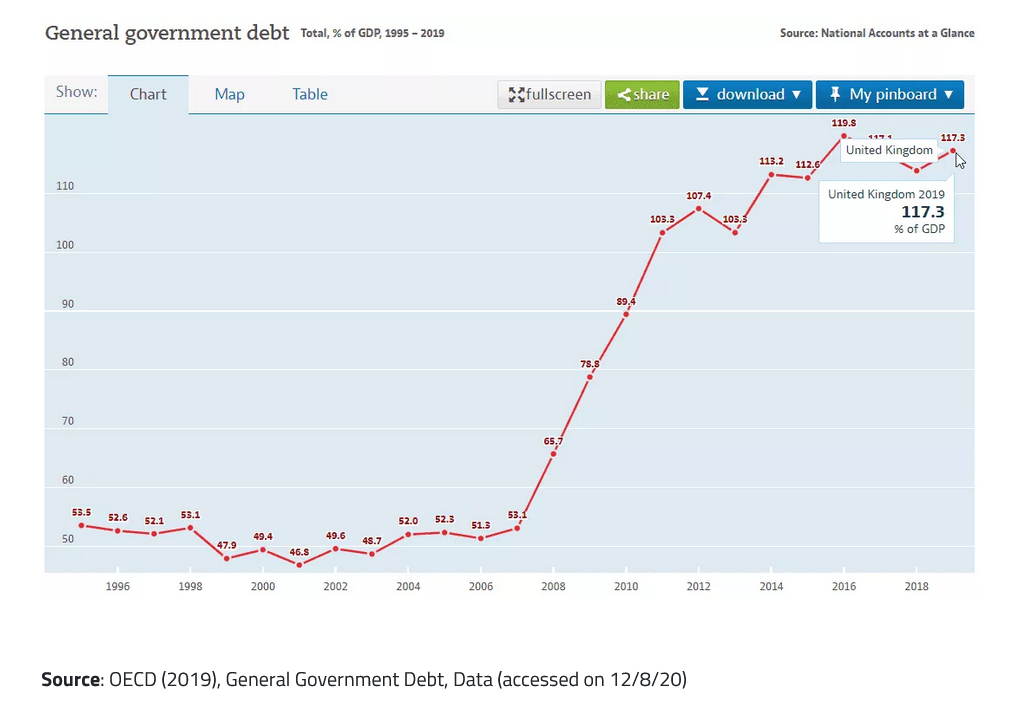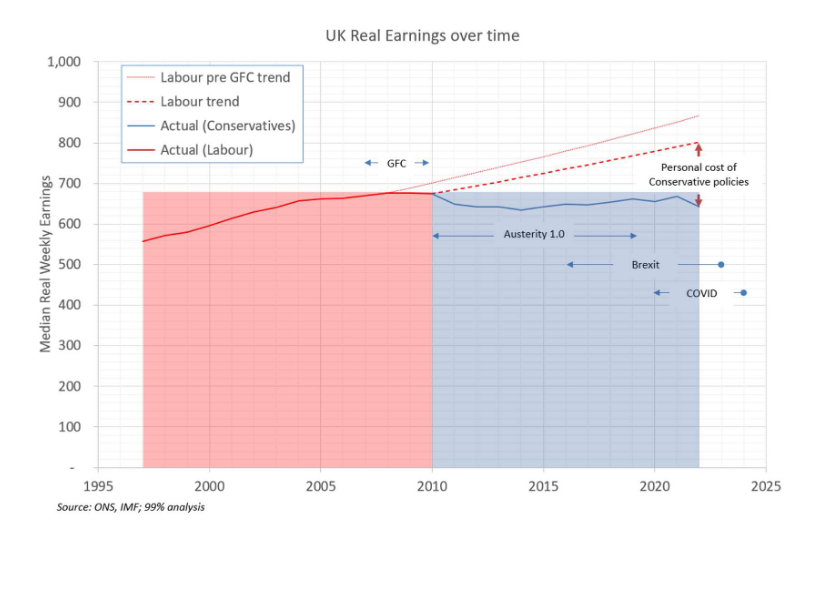There will be many sage reviews of 2022. This is not one of them. You don’t need me to remind you of the tragi-comic twists and turns of Tory contortion and corruption, the end of the second Elizabethan era (and the reinvention of HMQ as someone who relentlessly smiled), the surprising mid-term performance of Biden’s Democrats, the miserable machinations of Putin and Xi, the failure to keep 1.5 alive, the unconscionable aborting of Roe v Wade, the elevation to hero status of that peerless people’s champion, Martin Lewis… All of these will be amply covered elsewhere.
Instead, allow me to make just one observation about 2022: reality checked in.
When the Queen died, my mischievous son Dan hoped Charles would opt for an interesting regnal name. Dan was rooting for him to dub himself Arthur. After all, the country needed a lift, and it’s not as if there was any national gravitas left to protect.
But it turned out 2022 was not to be a year of diving deeper down the rabbit hole of myth. Charles chose Charles. And the time for reliance on stories about our country and ourselves – our sun-never-sets history and our world-beating future, our sceptered isle, our Albion – came to an abrupt halt. Because the most significant event in 2022’s sorry calendar was the busting, courtesy of Truss and Kwarteng, of the myth of Conservative fiscal responsibility – and with it, our collective propensity to prefer romance over evidence, a malaise which had dogged the last several years of British politics.
This reality check came, as we know, at a time of confluent economic calamity. First, the energy price hikes resulting from the Russia/Ukraine war. Second, additional inflationary pressure courtesy of Brexit and supply chain issues, home and abroad. Third, interest rate rises from a Bank of England charged with controlling inflation with the bluntest of instruments, but also seemingly intent on following the Federal Reserve’s unhelpful direction of travel. Fourth, the coming home to roost of twelve years of Tory economic choices, now unadorned and unprotected by the flamboyant prolixity of the pantomime premier, Britain (or was it Briton?) Trump. So much reality, landing with so much synchronicity, on one poor unsuspecting kingdom, and no hero to pull the sword from our troubled stone..
It matters that the seismic shift in the polls away from the Tories has coincided with these economic setbacks. Because there is a school of thought which suggests that, in times of economic woe, the Tories gain votes, because the British public believes that Tories – the natural party of business and finance – do sound economics. And if the public is persuaded that belt tightening is necessary, then the Tories are the people to make those unpopular choices for the good of the country.
But the polls suggest that this faith in innate Conservative fiscal expertise has vanished in a puff of smoke. Moreover, there is an awareness that we have already had twelve years of tightening – is there really scope for more? Would it be fair? And would it even work? Cameron and Osborne’s austerity did not deliver prosperity, or anything remotely resembling it. If substantial public support for striking workers is anything to go by, the old Tory offer of bitter medicine today, in return for promised jam tomorrow, simply isn’t washing. We want the economy to work for us, and not the other way round.
We can’t know for sure whether this loss of credibility will really result in wholesale abandonment of the Conservatives in the privacy of the ballot box, come the general election. That assay may be a good year away, and much could change in the interim. In the meantime, the only hope the Tories have is to sell the idea that Truss and Kwarteng were an uncharacteristic blip, and to return to the old line that, if times are hard, you need Tory rectitude, and not Labour profligacy, to get things back on track. This leaves Prime Minister Sunak little room for manouvre, even if he wanted it. With accusations of weakness from Starmer, he has no choice but to go for a tough approach to government spending, and to take a risky hard line on (so far) popular strikes. It doesn’t augur well for 2023.
At the same time, Labour has an opportunity, unique in recent memory, to lay to rest the myth of Tory economic capability once and for all. Before the demise of Johnson, before the catastrophe of Kwarteng and Truss, such was the collective compulsion to believe in a Britain unrestrained by reality, that there were things which simply could not be said. Truths which simply could not be uttered. That Brexit has failed is one of them. That steady immigration is a prerequisite of growth is another.
But there is a truth bigger even than those, and more fundamental: the Tories are, forgive my French, fucking terrible at managing the economy. On every key metric, Labour are demonstrably better. Any voice in voters’ heads suggesting that only the Tories can set the economy straight must be strangled at birth. The party of sound economics is, on all the evidence, the Labour Party.
Such has been the power of Tory myth, that this truth is rarely uttered. From ‘Labour Isn’t Working’, to Cameron and Osborne’s effective pinning of the blame for the global financial crisis onto Brown, via accusations of failing to fix the roof while the sun was shining, and Gordon selling the gold while ‘maxing out the credit cards’, the national story has been that Labour may be ‘nice’, but they can’t manage the economy, whereas the Tories may be ‘nasty’, but that’s what makes them good custodians of the public purse.
There’s a technical term for this story: bollocks. If you want evidence – and you should -take five key metrics, and weep.
ECONOMIC GROWTH
On growth, Labour do better. Austerity strangles the economy.

GOVERNMENT BORROWING
On borrowing, there is no competition. Labour held borrowing down while massively improving public services. The Tories, in contrast, have delivered extraordinary increases in borrowing, alongside devastating cuts. Truly the worst of both worlds.

UNEMPLOYMENT
How about unemployment? Remember those “Labour Isn’t Working” posters? In truth, almost every year under Labour saw below average unemployment. Most years under the Conservatives saw above average unemployment. And we know that the current recession is set to turn staff shortages into rising unemployment.
 INFLATION
INFLATION
How about inflation? You’ll hear our Tory chancellor and Prime Minister warning that it is an evil which harms us all, as if they alone took its harm seriously (and as if they had nothing to do with steering us into the inflationay corner in which we find ourselves). But guess what? The record shows that only the Conservatives have delivered inflation over 4% — and we all know that painful recent figures will only make the comparison far, far worse.

WAGES
Wages have fallen under the Conservatives. After twelve years of Tory, pay packets are smaller than they were under Labour. No surprise that we’re seeing foodbanks running out of food, and unprecedented strikes by workers who feel abandoned and betrayed. Enough is enough of not enough.

That’s the big takeaway of 2022. The Liz and Kwasi Kwartrusstrophe blew the long-unchallenged lie that the Tories could be trusted with the economy. It was never true, but now we’re allowed to say it out loud.
Labour has the chance to rebrand, justly, as the party not just of decency and fairness, but of sound economics. It’s imperative that this vital terrain is no longer gifted to the Conservatives. The time for indulging in myths – in romantic visions of our country, made somehow strong by poetic belief in legend or empire or flag – is behind us. There is another way, based in evidence and founded on fairness, which trumps Tory entitlement to govern on every metric that matters.
Sorry, Cameron and Osborne. Sorry, Sunak and Johnson. Eventually light shines on false narratives. Eventually reality checks in on more than a decade of failure. Eventually myths get busted. Them’s the breaks.
Thanks to Mark E Thomas/99% Organisation for charts and analysis.
